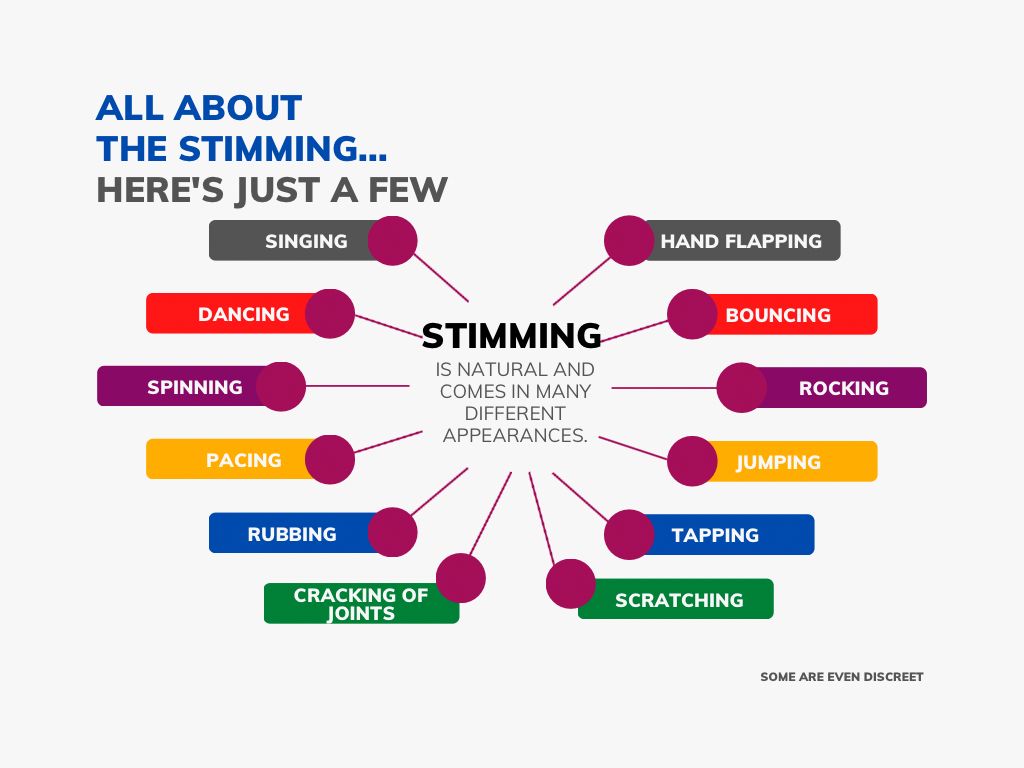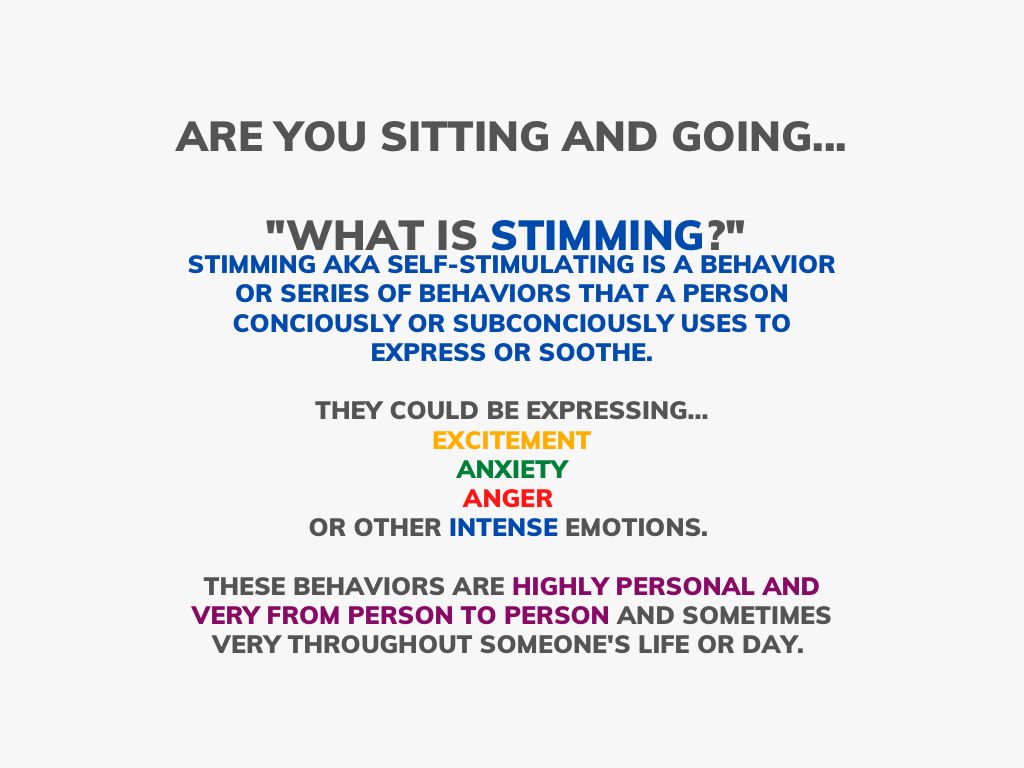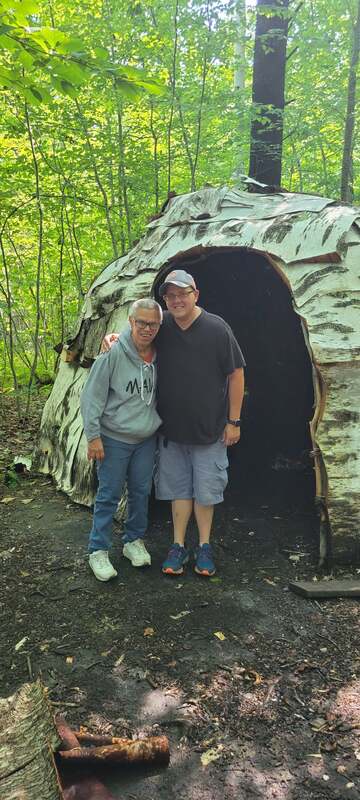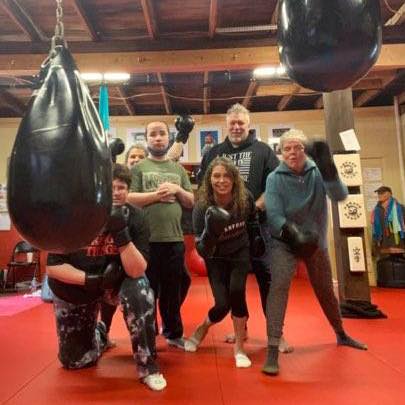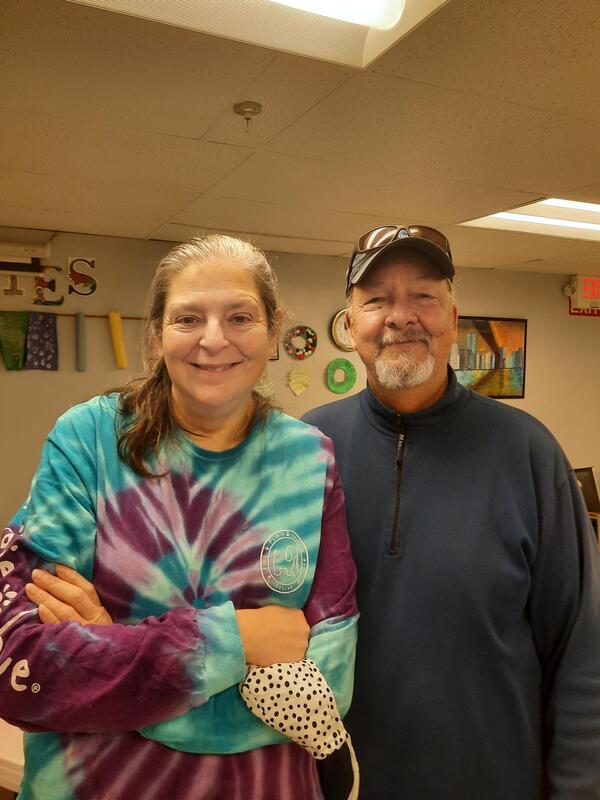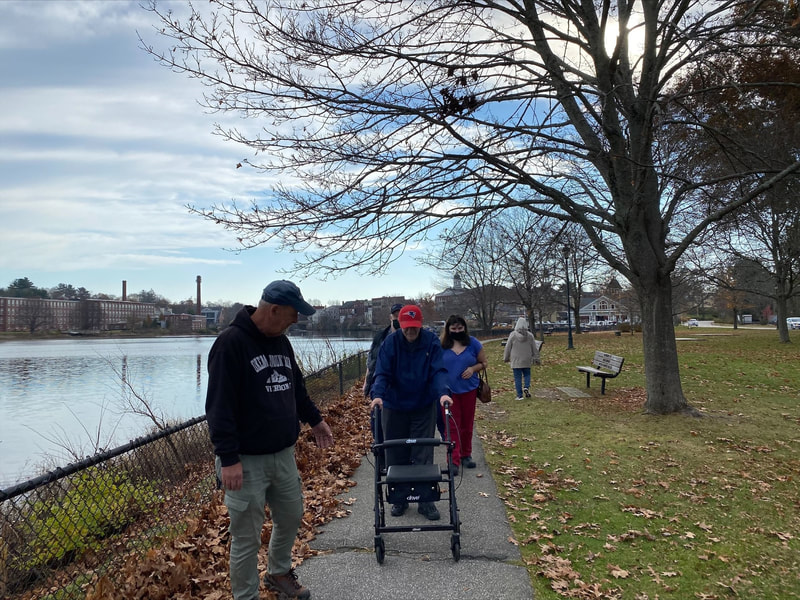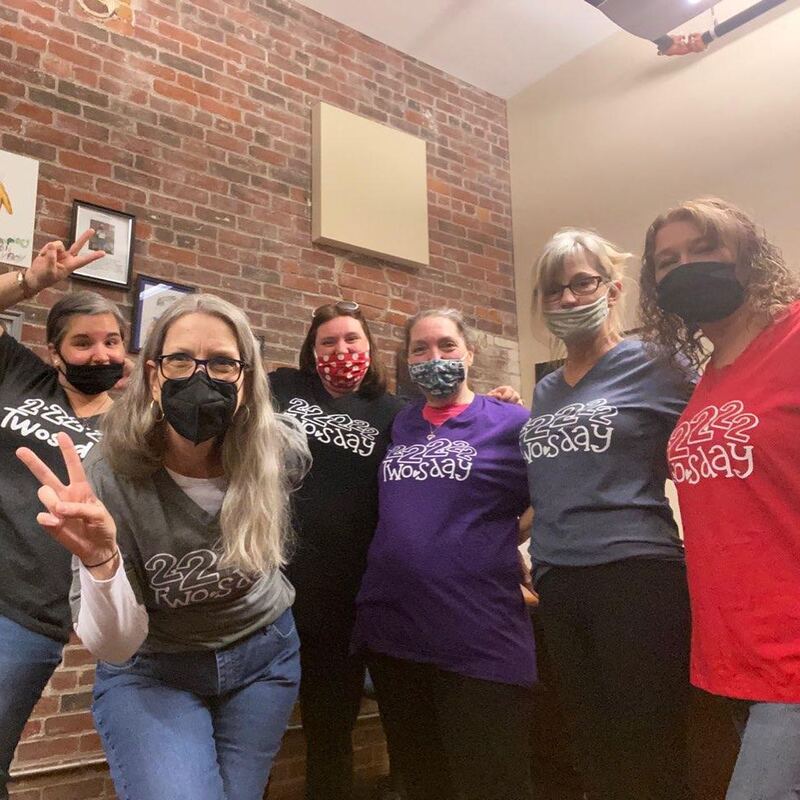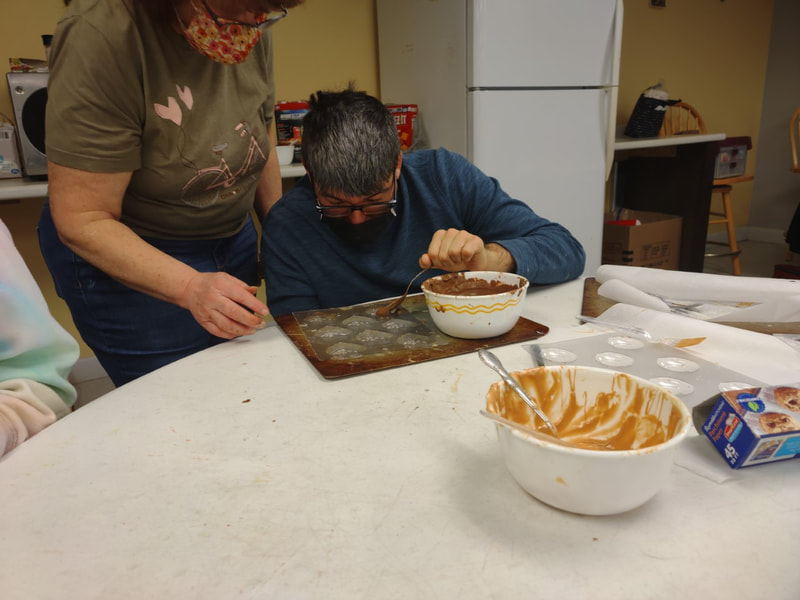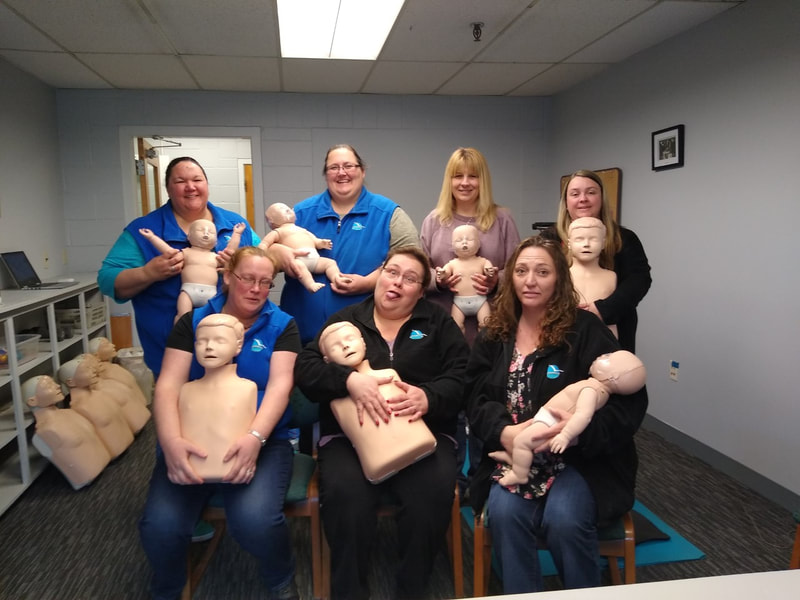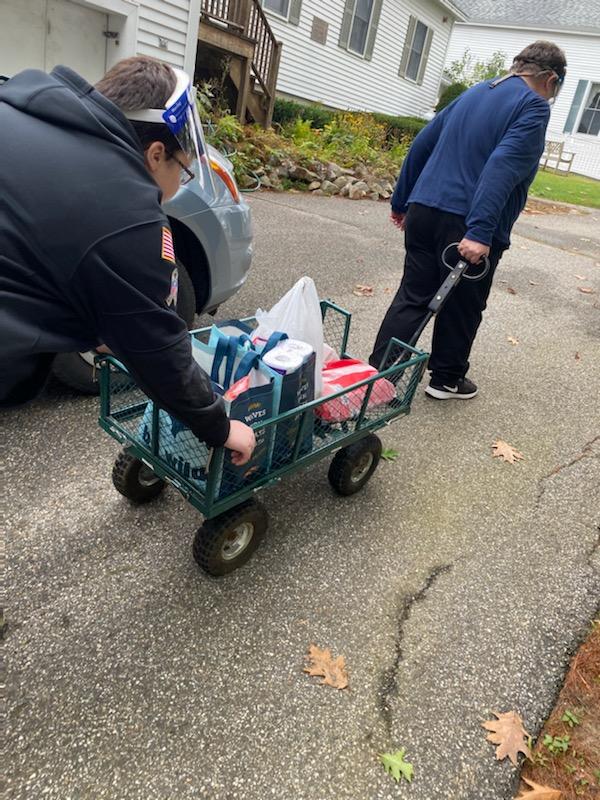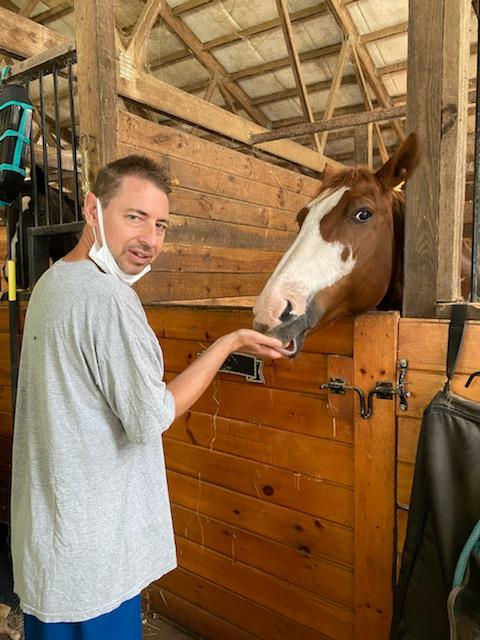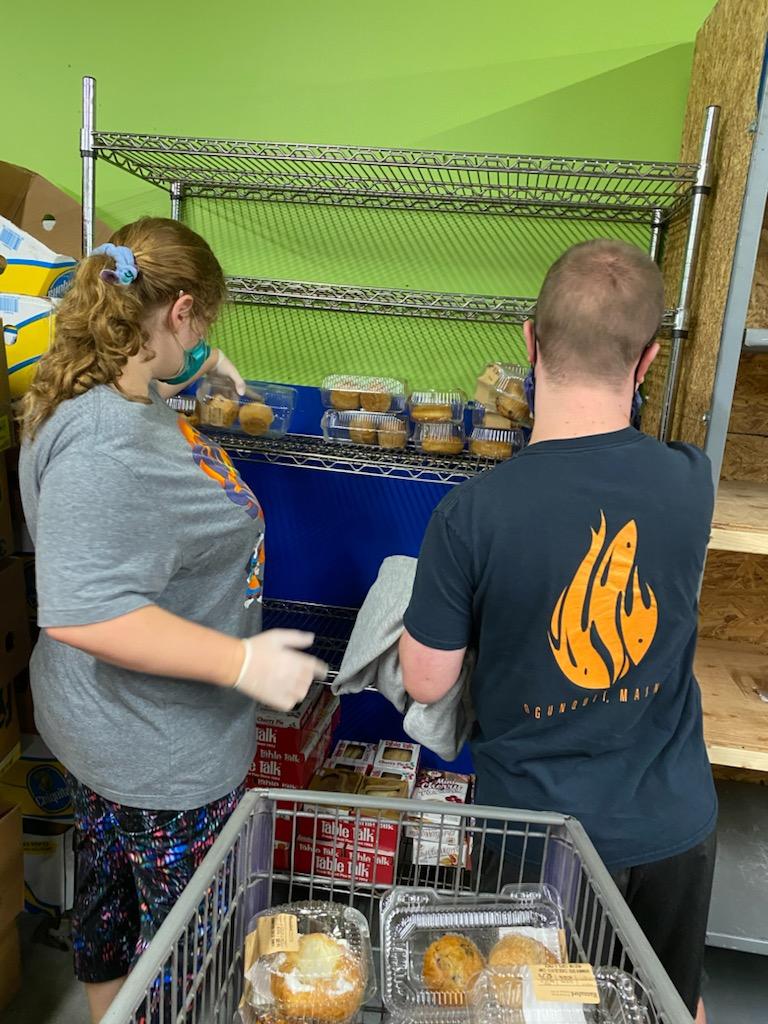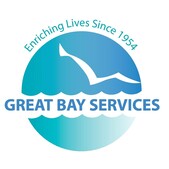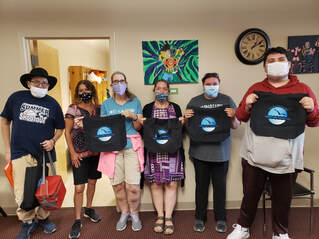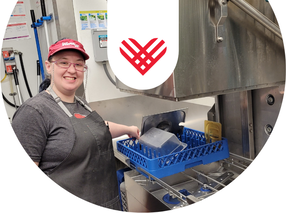 This past Sunday was International Day of Persons with Disabilities, which aims to promote an understanding of disability issues and mobilize support for the dignity, rights, and well-being of persons with disabilities. For #GivingEveryTuesday, let's work toward a disability-inclusive, accessible, and sustainable world. How Can You Help? 1: Donate. No donation is too big or small. Each donation we receive makes employment, independent living, case management, volunteerism, and more accessible for disabled adults. Right now, there is likely a Great Bay Services staff member providing support in someone's home, place of employment or in the community you live or work in. Thanks to donations and support from businesses and individuals like you, we are able to provide vital services enhancing the lives of disabled adults in your community. Please consider a donation today. You can submit a donation via the donate button to the left or by mailing a check to 23 Cataract Avenue Suite 1 Dover, NH 03820. If you cannot donate, please take a moment to read over the information below on how you can help support the disability community! 2: Remember that not every disability is a visible one. It's important to be inclusive and accessible as possible. 3: Promote social inclusion amongst people of all ages. Our overall cultural consciousness on how we treat and interact with disabled people and disability needs to change. The change starts with you changing how you discuss and interact with disabled people around children, family, and peers. 4: Educate yourself about the history of the disability rights movement and where we're at today. 5: Always ask before giving assistance. Just because a person has a disability, they don't necessarily need or want your assistance. 6: Learn about what terms are appropriate and what ones are outdated. Terms like “special needs”, “handicapped”, and more are no longer appropriate. The changing of these terms is thanks to lived experiences shared in conversations regarding disabilities and when speaking to disabled people about their lives. 7: Is your workplace accessible and inclusive? Can your website be used comfortably by people who have disabilities? Are you providing captioning or ASL interpretation at all events? Do you have remote work options even outside of the pandemic? When setting a meeting, ask if there is anything you can do to prepare for the meeting to make sure everyone is able to participate fully. These simple things worked into your daily life can change the lives of so many people in your community!
0 Comments
Autism was entered into the Diagnostic and Statistical Manual of Mental Disorders also known as DSM in 1980 and under the name “Infantile Autism”. In the 43 years since being initially added to the DSM, the diagnosis has changed names a few times and now is included as part of the conditions that fall under neurodiversity. Like all neurodiversity topics and diagnosis once upon a time they were confined to a set of characteristics, gender, and age ranges that defined the diagnosis. Many still believe those initial parameters and the stigmas. With stigmas come misconceptions, bias and discrimination making it harder for autistic and neurodivergent adults to feel comfortable sharing their stories and being openly who they are.
Yesterday started Autism Acceptance Week, I would like to share some ways on how you can better accept and support your loved ones and community members every day of the year.
By accepting autistic individuals as they are and celebrating their strengths, talents, and contributions to society, you are creating an inclusive and welcoming environment. There are many more ways to celebrate Autism Acceptance Week, I have attached articles, and a link to a list of books written by autistic authors below to help you on your acceptance journey and encourage you to support autistic adults in hopes to broaden your inclusivity and acceptance. Here is an article called “Coming Out as Autistic: A Coming Out Kind of Conversation” written by Psychologist and a late diagnosed AuDHD woman named Dr.Neff. Here is an article called “Unlock Creativity By Making Space For Neurodiversity In The Workplace” written by Allaya Cooks-Campbell. Here is a Good Reads list of books in a variety of genres written by autistic authors. Some food for thought questions for you: What can I personally do to educate myself in this area to move from awareness to acceptance? How can I support someone I know or someone I don’t know that is neurodivergent or autistic? As readers of this blog likely know, Direct Support Professionals have been making a huge positive impact on my family over four decades. I am a fierce advocate for not only the wellbeing and success of individuals with intellectual & developmental disabilities, like my brother, but by logical (and emotional) extension a fierce advocate for the wellbeing and success of the Direct Support Professionals who make his and his peers’ wellbeing and success possible. As a colleague in the field said to me last year, and as I’ve said to many of you in the intervening months: we are in the business of facilitating self-actualization. I am enormously proud of the work Great Bay Services does – the work of our Direct Support Professional (DSPs) is the work of Great Bay Services. Without DSPs, there is no Great Bay Services. We want to support and lift up our DSPs in every way we can – and over the past 2 years this has included establishing our first Human Resources position, our first Training Coordinator position and our first Training Committee, as well as working to maximize the amount of federal & state funding we are able to put into staff wages, benefits, & bonuses. This is a work in progress, and I’m proud of what we’ve done to date – but in order to make a bigger impact, not only for our own staff but for the DSP workforce nationwide, we need to be involved in advocacy on a national level: nonpartisan advocacy rooted in educating our legislators about what DSPs do, why they’re so important – not only to our loved ones & communities but to society at large, and what legislators can do to help. And this is where the National Alliance for Direct Support Professionals (NADSP) comes in – a membership organization which we also joined within the past two years as a part of our commitment to the DSP profession. From NADSP’s launch of their inaugural Advocacy Symposium: “On March 9-10, 2022 National Alliance for Direct Support Professionals will embark on its first-ever national advocacy event to bring the direct support professional (DSP) perspective to the forefront of Congress and the Administration during a time of unprecedented workforce challenges. Hardships from the pandemic and recent legislation has provided new insights and opportunities for the direct support workforce that supports people with disabilities. The NADSP recognizes the previous absence and critical importance of lifting the voices of DSPs to federal policy-makers, so that public policy can be informed by the people who are on the front-lines of supporting people with disabilities to live, work and thrive in the community. In February 2022, the NADSP [provided] direct support professionals with materials to prepare for legislative meetings. This [led] up to a 1.5-day virtual Symposium that [culminated] with virtual meetings with Congressional leaders and staff to educate and advocate on NADSP’s public policy priorities for 2022.” Together with two DSPs from peer organizations who are also members of NH’s Private Provider Network (PPN), Kristi Reynolds & I had the great pleasure of speaking via Zoom with staff members of New Hampshire’s Congresspeople: Senators Jeanne Shaheen & Maggie Hassan and Representatives Annie Kuster & Chris Pappas. Peers of ours from the Maine Association for Community Service Providers (MACSP), led by OHI Maine CEO of the past 42 years Bonnie-Jean Brooks, held similar meetings with Maine’s Congresspeople. Our meetings went well and were largely met with enthusiastic support – most especially from our Senators. As you will note below, the two pieces of legislation NADSP members were speaking about during this Hill Day were authored or co-sponsored by NH/ME Senators. Almost 400 NADSP member organizations spoke with Senators & Representatives in 42 states across the United States as part of this Hill Day. We all requested the same support from Congress: · #1: Support the Creation of a Standardized Occupational Classification (SOC) Code for DSPs by cosponsoring and urging swift passage of the “Recognizing the Role of Direct Support Professionals Act” ([Hassan authored, Collins co-sponsored] S. 1437 /H.R. 4779). · #2: Support the Direct Care Workforce by Cosponsoring the “Supporting Our Direct Care Workforce and Family Caregivers Act” ([Hassan co-sponsored] S.2344), or “Direct Creation, Advancement and Retention of Employment (CARE) Opportunity Act” (H.R. 2999). · #3: Support an increase of $150 Billion to Support the Expansion and Enhancement of Medicaid Home & Community Based Services. As representatives of the DSP workforce, we all explained to the Congress people he main challenges we currently face: · There is no official Standard Occupational Code or formal recognition of the DSP profession – this is a profession which has a great deal in common with roles such as CNA, HHA, PCA, & LPN but includes additional areas of expertise beyond those roles which are not as of yet recognized – and without recognition as a profession on a federal level, advocacy for better & standardized wages is limited · Lack of clear DSP career pathway – this is something which Great Bay Services’ own Training Committee is working on, but without the funding to connect career steps with increased wages, these pathways are limited in impact · Lots of demands and a high level of skills required but with little training/supports – again, our Training Committee is working on this internally, but federal support is needed · Low wages, long hours, few benefits, little advancement – our addition of a Human Resources Administrator to our staff last year emphasizes our commitment to maximizing benefits, and our Training Committee is doing what it can, but again – federal support is needed · The legislation mentioned above will help us all across the country better tackle these challenges Soon I will be attending NADSP’s feedback session for State Leaders – Bonnie of OHI Maine and I will be in attendance to report back about our experiences and to learn from our peers across the country and NADSP’s leadership about next steps. Great Bay Services is – and I personally am – proud to stand together with peers in Maine and New Hampshire to advocate for our DSP workforce. It is vital that we provide DSPs with the resources & recognition they deserve – not only to ensure we hold onto our wonderful staff members and attract new staff we so urgently need in order to meet demand for supports, not only because DSPs are the heart of everything we do – but because the skill level required, the competencies demonstrated, and the responsibilities with which we entrust them warrants those resources and that recognition.
Written by: Pamela Lowy, Director of Great Bay Services Hi, my name is Chrissy Swenson and I’m the new Communications & Outreach Coordinator at Great Bay Services. You may already know me as a Direct Support Professional (DSP) at Great Bay, a role I’ve filled for the past 4 years while also honing my communications & marketing skills in other roles for other employers. I’ve worked as a salesclerk, a buyer, a marketing director, a web editor, a social media manager, and more. At Great Bay Services I’ve worked one-on-one as well as with small groups as a DSP, and have gotten to know a number of our New Hampshire clients, staff, and community members through that work. You may be wondering if we’ve met before – I’d be hard to miss! I’m writing this while I sit on a secluded bench at a farm with a client. It’s beautiful out at 77° with a small breeze. This was not the plan for the day. She was so excited the last few weeks about going to the corn maze. We talked about how great it will be to be with so many of our friends. We talked about how they might have animals. We talked about how we hoped it wouldn’t rain. Now, here we sit. Alone. Without our friends. Not seeing the animals. It didn’t even rain. To the other patrons and staff here that didn’t see me and 8 other staff try to talk to her to see what we could do to get her to join the group. That didn’t see that we started this journey in the parking lot. That it took an hour to get us this far. They might think we’re waiting for someone to get out of one of the mazes. The things the public don’t see is she got in the car this morning negative and frustrated. They didn’t see that she turned her day around by jamming out to her favorite song or her pure excitement to see her friends. They didn’t see her mood shift to “I don’t like corn mazes.” To “I don’t want to be with ____.” To “I don’t want to be with my friends” to “I don’t like wristbands.” To “I don’t like ____ staff” To “I don’t like farms.” To “I don’t want to listen to staff.” To “I don’t want to talk” . They didn’t see us trying to salvage this day. They didn’t see her pure bubbling happiness turn to dislike and silence in the course of an hour. What changed? I asked her to pick up her things off the ground so her friends didn’t ruin her photos or fall and get hurt. Keep in mind if I didn’t, she would have been angry and upset that her pictures were ruined. With the alternative, she would have beaten herself up and felt horrible if one of her friends got hurt. I know it wasn’t what I said that is why she is upset. That is not why she doesn’t want any of these things. That is not why she wanted to sit on a bench alone when before all she wanted was her friends to surround her. What the public sees is two women alone at a farm barely speaking. I want to talk. I want to know what I can do to help. Instead, I stay quiet because the more I talk the more upset she gets. The more upset she gets the more adamant she is on her choices. The public thinks our clients are whatever social media or society tells them to think. They are not what you can read in a text book. They are not what you see on tv. They have thoughts and feelings that are too much for them just like the rest of us. I have worked with this client for almost four years now. I have learned her triggers, and quirks. The things that make her laugh endlessly and the things that make her talk in circles for hours. She is strong willed, loving, loud, mercurial, passionate, social, excitable, generous, empathetic, spontaneous, and so much more. I wish the public could see her for all her colors. Today we get the shade of mauve that is so dark it is almost purple-brown/gray/black. Today we got the wall. The public doesn’t see that being a DSP is not always easy. Some days it’s chasing your giggling client down a sidewalk on the beach because they skip-ran back to the car because they found a crab shell. Other days it’s telling them to keep their not kind words in their head and talking them out of doing things they will regret. Some days it’s asking them to quiet down some and not screech in the ears of other living creatures no matter how excited you are. Then there’s days it’s sitting on a bench, in the sun, in the middle of nowhere on a farm in silence hoping you can convince them to eat lunch today. So today, here we sit. We listen to the whisper of the corn stalks . We watch the butterflies. On this bench we take a deep breath. Today we enjoy the silence of sunshine. - Chrissy Swenson, DSP 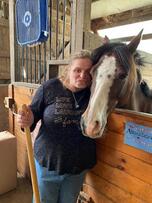 A funny thing about our nonprofit is how much time we spend supporting other nonprofits. Volunteering with our members allows them to be active in the community, learn about other organizations, give back and even get some job experience. In fact, volunteerism is such a large part of our program, we created a position for a Senior Direct Support Professional only to coordinate volunteer opportunities in Sanford. Cory Long works with other nonprofits in our community to find organizations and positions that are most mutually beneficial. As Great Bay Services believes in fostering our members' independence, Cory works with our members and Sanford Program Director Jon Stimmell to find the interests of our clients and help them reach their goals. In the past month, our members:
Starting in October we are adding a few more sites, like preparing food boxes for Curtis Lake Church and serving a buffet breakfast at Seeds of Hope center for teens. Of course volunteering is its own reward, but our members are also taking the next steps, learning job skills. Many of these opportunities are weekly commitments, so our clients can work towards individual goals and get experience working on a schedule. We will also be working on translating our new skills on to resumes and job applications with the members. Cory, Jon and all our staff at both Great Bay locations work closely with each of our member to help them achieve each of their goals. A lot has changed in 67 years. Great Bay Services was founded in 1954 by a group of parents who refused to send their children with disabilities to the state institutions. Today, we are still on the forefront of innovative and progressive programs for adults with disabilities.
To reflect the evolution of Great Bay Services, we unveiled a new logo, designed by Eileen Berezni. It incorporates the same elements of the soaring seagull and the waves of Great Bay. But rather than separating the pieces, the new logo unites the bird, waves and name in the same image. We wanted to emphasize our longevity, our mission, and our name. We are part of the community, not separate. Rather than the seagull above Great Bay, the new logo shows that we are merged with the whole. The new logo also updated the color scheme, while still using the cool blue and green tones that have always represented Great Bay Services. Our organization is constantly developing. We wanted a logo that people didn’t associate with the old Great Bay Services, sheltered in Newington. We operate all along the greater seacoast area from Hampton, NH to Portland, ME. We serve not only our members, but their families, their employers, and other area nonprofits where our clients volunteer. We are part of the community, enriching the community – we are Great Bay. Tote bags featuring the new logo will be available for $15 by contacting 603-842-5344. The bags were printed by Spectrum Designs, a New York based company which employs adults with Autism Spectrum Disorder. - Elizabeth Worboys Burr, Director of Mission Advancement Everything we are, everything we do, is possible because of our direct support professionals. Our members rely on these staff for their programs and their supports.
Your children are always your children. Whether they are four years old or forty, you worry about them and care for them. For parents of children with disabilities, they can be life-long caregivers. Great Bay Services has always been proud to be a part of our members' Circles of Support. In this past year, more than ever, we have seen the overwhelming love and support that our members receive from their parents, families and guardians.
It is important that people also care for the caregivers. Below are some resources that may be valuable: Caregiver Action Network the nation’s leading family caregiver organization working to improve the quality of life for the more than 90 million Americans who care for loved ones with chronic conditions, disabilities, disease, or the frailties of old age. www.caregiveraction.org The Family Caregiver Alliance offers strategies and support for your well-being as a caregiver. www.caregiver.org The Administration for Community Living was created around the fundamental principle that older adults and people of all ages with disabilities should be able to live where they choose, with the people they choose, and with the ability to participate fully in their communities. acl.gov/programs/support-caregivers We also find that as parents age, we see siblings as the caregivers of adults with disabilities. The role of a sibling in the life of a person with an intellectual and developmental disability (I/DD) is as complex as it is meaningful. Siblings can be friends, confidants, and caregivers. The Sibling Leadership Network can help. siblingleadership.org The Arc recognizes that siblings play an important role in the lives of their brother or sister with I/DD. It is crucial that siblings are supported to be the best advocate they can be. To achieve this goal, they must have access to information and resources to help them make informed decisions – whatever their involvement. thearc.org/get-involved/siblings/ And of course at Great Bay Services, we are always here to support you. Many of our staff are themselves parents, siblings and guardians of individuals with disabilities. Being a caregiver is the hardest job. You're not alone. - Elizabeth Worboys Burr, Director of Mission Advancement If you’re like most parents with a special needs student, you might find yourself thinking “My teenager is finishing school soon, what do I do about their services?” or “Why do I need to prepare ahead of adulthood, and when?”
|
|
Great Bay Services New Hampshire
23 Cataract Avenue, Suite 1 Dover, NH 03820 603-842-5344 |
Great Bay Services Maine
61 Washington Street, Suite 4 Sanford, ME 04073 207-850-1053 Ext. 2001 |
DEI Statement
Great Bay Services was founded at the time that the US civil rights movement was being born and see our history as being tied to the fight for justice and equity. Throughout our 70-year history we have evolved and grown alongside major diversity legislations and societal changes. Disability is the forefront of our organization, but we encourage and celebrate all forms of diversity, fostering equity, inclusion, belonging, and accessibility for all. Creating an inclusive community where everyone has access to equal opportunities and feels they belong is vital to us as an organization – not just within Great Bay Services but in the world around us. We welcome and encourage all to live happy and healthy lives no matter who they are, where they come from, what they look like, their gender identity, sexual orientation, disability, socioeconomic status, or age.
Great Bay Services was founded at the time that the US civil rights movement was being born and see our history as being tied to the fight for justice and equity. Throughout our 70-year history we have evolved and grown alongside major diversity legislations and societal changes. Disability is the forefront of our organization, but we encourage and celebrate all forms of diversity, fostering equity, inclusion, belonging, and accessibility for all. Creating an inclusive community where everyone has access to equal opportunities and feels they belong is vital to us as an organization – not just within Great Bay Services but in the world around us. We welcome and encourage all to live happy and healthy lives no matter who they are, where they come from, what they look like, their gender identity, sexual orientation, disability, socioeconomic status, or age.
|
Links To Show Your Support
Auction & Gala Bowl-a-thon Donate Events NHGives Past Events Sponsorship Tickets & Merchandise |
Great Bay Services is a 501(c)3 Nonprofit.
All donations are directly used to support our services. EIN: 02-0242389
Our New Hampshire program is sponsored in part by the New Hampshire Council on Developmental Disabilities
|

